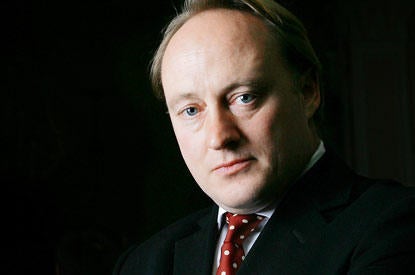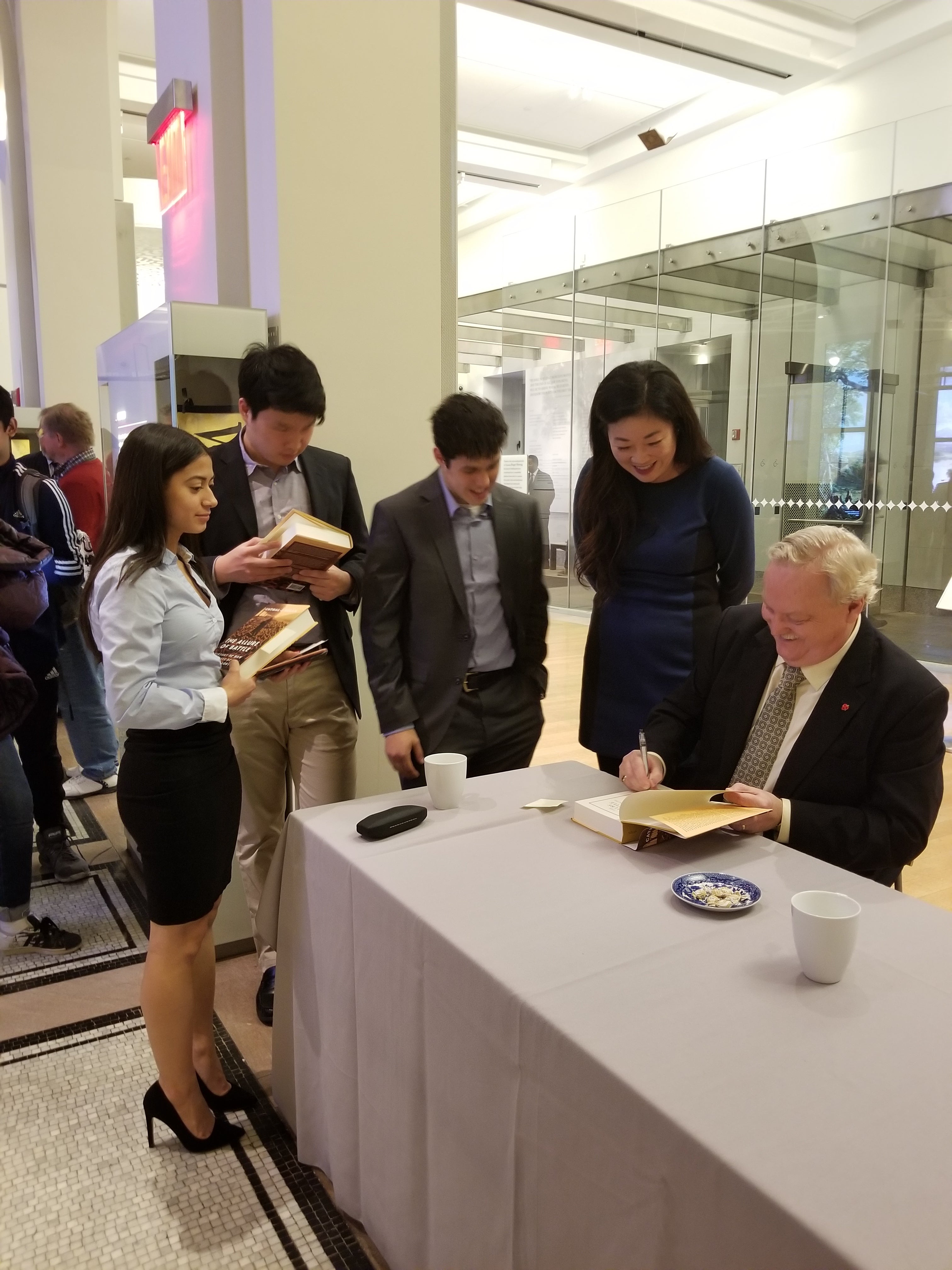Gilder Lehrman Prize for Military History Event Features Two Military Historians in Dialogue
Posted by Gilder Lehrman Staff on Thursday, 11/29/2018
 On Monday, November 26, the Gilder Lehrman Prize for Military History was awarded to Cathal Nolan for his book The Allure of Battle: A History of How Wars Have Been Won and Lost (Oxford University Press, 2017) at the New-York Historical Society.
On Monday, November 26, the Gilder Lehrman Prize for Military History was awarded to Cathal Nolan for his book The Allure of Battle: A History of How Wars Have Been Won and Lost (Oxford University Press, 2017) at the New-York Historical Society.
After a light reception in the Great Hall, attendees entered the Robert H. Smith Auditorium for the program. President and CEO of the New-York Historical Society Louise Mirrer welcomed the crowd of military history enthusiasts, trustees, New-York Historical Society patrons, and Gilder Lehrman Affiliate School teachers and students, making note of Gilder Lehrman Institute founders Lewis E. Lehrman and Richard Gilder and their work in bringing the two hosting institutions together. Gilder Lehrman Institute President James Basker received special mention for helping revitalize the New-York Historical Society as the driving force behind the 2004 exhibition Alexander Hamilton: The Man Who Made Modern America.
James Basker awarded the Gilder Lehrman Prize for Military History and set the stage for the main event: a conversation between Andrew Roberts,visiting professor at the Department of War Studies, King’s College London and chair of the Prize jury, and prize-winning author Cathal Nolan, associate professor of history and executive director of the International History Institute at Boston University.
 Professor Roberts, whose recent book Churchill: Walking with Destiny has been called “undoubtedly the best single-volume life of Churchill ever written” by Dominic Sandbrook of the Sunday Times, sat with Cathal Nolan and launched into his summary of the thesis of Professor Nolan’s book: Military genius is wildly overestimated and individual battles do not matter. Nolan corrected Roberts, setting the sparring tone for the evening, by saying that “battles do matter, but attrition matters more.”
Professor Roberts, whose recent book Churchill: Walking with Destiny has been called “undoubtedly the best single-volume life of Churchill ever written” by Dominic Sandbrook of the Sunday Times, sat with Cathal Nolan and launched into his summary of the thesis of Professor Nolan’s book: Military genius is wildly overestimated and individual battles do not matter. Nolan corrected Roberts, setting the sparring tone for the evening, by saying that “battles do matter, but attrition matters more.”
A lively discussion followed, with Roberts joking about his Waterloo book being undercut by Nolan’s dismissal of the actual importance of Waterloo to Napoleon’s defeat and Nolan commenting on the outcome of the American Revolution. On the more serious side, Roberts acknowledged the depth of Nolan’s military history knowledge, both men agreed that military history is often given less respect than it deserves by academia, and Roberts referred to Nolan’s book as “profoundly moral.”
Nolan, who admits to “making his students cry” with his vivid and painful lectures about the realities of war, said he did not set out to write an anti-war book, but found, in the end, that he did.
Both historians covered thousands of years of military history through their discussion—from Hannibal to Hitler—noting how the American Civil War predicted modern trench warfare but ultimately did not influence how countries waged war after it, and explored the implications of Nolan’s work regarding nuclear and cyber warfare via audience questions.
 The high school students in the crowd, all from Gilder Lehrman Affiliate Schools, sat in rapt attention, taking notes, particularly when Nolan made statements about war such as “Vanity is the problem. Humility is the solution. Therefore, I think we’re stuck [with war].”
The high school students in the crowd, all from Gilder Lehrman Affiliate Schools, sat in rapt attention, taking notes, particularly when Nolan made statements about war such as “Vanity is the problem. Humility is the solution. Therefore, I think we’re stuck [with war].”
After the conversation between Roberts and Nolan, enthusiastic audience members waiting in line to have their copies of Nolan’s Allure of Battle and Roberts’s Churchill: Walking with Destiny signed, continued their own discussions about the “allure of battle,” the significance of attrition, and the high quality of the program they had just attended.